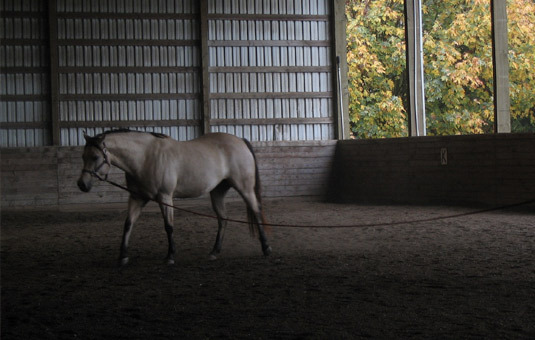Donald Miller's Blog, page 79
December 3, 2013
The Importance of Being a “No Man”
Saying no. Do we really need another lesson on it? Yes, we do. Why? Because no matter how many times someone stands up and tells us we need to pace ourselves, say no more often, reserves our yes’s, we do it really well for about an hour and a half and then we are back to over-committing our lives.
I said no to something else last night. I felt guilty. It was a good thing I was being asked to do. It was service at a homeless shelter, actually. And even admitting that, I feel a bit ashamed. But I had set aside tonight for writing and for cooking. So I said “No, thank you for the invitation, but I can’t.” And no one is mad at me and the homeless shelter is still running and the world didn’t end. And I still have friends and a life and a purpose.
For a long time—most of my life—I found my purpose in pleasing others and doing what they asked of me.
When they were happy with me, I was happy with me. But these last few months I have made an effort to say no more often and at odd times when most people would say yes. For example, there have been parties and coffee dates and completely fun and normal activities, and I’ve said no thanks. And maybe I still have a gnawing unease about the possibility of losing friends and things that I think make me who I am, but do you wonder how I feel over all? I feel like I can breathe easier.

*Photo by Alon, Creative Commons
In a very good (and very long) article called “The Power of No,” Dr. Judith Sills explains that by saying the word “no” we are saying, “‘This is who I am; this is what I value; this is what I will and will not do; this is how I will choose to act.’
We love others, give to others, cooperate with others, and please others, but we are, always and at the core, distinct and separate selves. We need the answer No to carve and support that space.”
Dr. Sills goes on to talk about the way a two-year-old says no so naturally. “That primordial, powerful No is the original assertion of the self against the other,” she says. “For the rest of our days we are challenged to find the proper, effective way to draw that line.”
Instead of worrying about the rest of your days, think about the next 30.
You are going to be asked to do a lot of things. ‘Tis the season for parties and errands galore.
Remember, each time we say yes to something that makes our stomachs a bit sick with dread, we are losing ourselves, muddling the truth of who we are. But each time we say no to those things, we are accepting the truth about who we are at our core.
It doesn’t have to be 20 consecutive “no’s”, but I do challenge you say no to one out of three requests that come your way over the next month. I bet you will be able to breathe easier because of it. I bet you will experience Christmas more fully. And I bet you will discover another little piece of who you are.
The Importance of Being a “No Man” is a post from: Storyline Blog
What Happens When We Assume The Best About Others?
A few weeks ago, my wife and I locked our keys in the car during church, with the car running. We didn’t realize it until about two hours later as we were about to head to lunch.
So we did the only thing we knew to do. We called a locksmith, who arrived about 30 minutes later. But when he pulled in, we got nervous. As if the idea of breaking into our car wasn’t enough of a concern, when I caught a glimpse of him, my concern grew. He pulled into the parking lot and I swore he was still in high school.
He was giving his best attempt at a beard, in an over-sized t-shirt and shorts on a relatively brisk day. Trash fell out of his car as he opened his door to greet me.
He started, “I just need you to sign this form which says I’m not liable if any damage is done to the car. After that, I’ll give it a go.”
I stood there, even more visibly nervous than I was before.
“Would you mind walking me through your process quickly?” I asked.
“We have an air bag system to pry open the door and access the lock. But if that doesn’t work, I’ll just throw a brick through the windshield,” he grinned.
I signed the form — because what else was I going to do? — and he went to work.
After about 30 seconds, we were able to get into our undamaged car and turn off the ignition. Our locksmith finished his paperwork as I stood there, with my wife, thinking about how the last few minutes had unfolded.

*Photo by Shagun, Creative Commons
The thing I kept thinking was this: Assume positive intent.
I worked for Apple Retail for a few years and we played by a set of “rules” which defined the way we did business. One of those rules was this: assume positive intent. That meant that, no matter what a customer asked us to do, we were to assume that customer had positive intent. We weren’t supposed to assume they were trying to cheat the system or get something for free.
We were supposed to assume the best about them.
In certain situations, assuming positive intent might be perceived as ignorance or unwarranted trust, but I’m not sure it needs a title.
Assuming the best in people is a great approach to life, something I failed to do with the locksmith.
I want my life to be filled with positive intent. Fortunately, grace allows me to try again tomorrow.
What Happens When We Assume The Best About Others? is a post from: Storyline Blog
December 2, 2013
Does Attending Church Mean You Must Carry “Buckets of Shame?”
When I was in a group-therapy session once, the therapist took us outside, into a field where there was a horse. She’d placed a half dozen, sealed buckets of oats around the field and said if we wanted to walk the horse we should pick up a bucket in one hand, then guide the horse anywhere we wanted.
When we were done, we could offer the bucket and the horse to somebody else in our group.
As each member of the group guided the horse, the therapist would ask us questions about how we were feeling. One girl discovered she had an incredible fear of strength and she didn’t know how to trust it. Another man discovered that he was too domineering and because he didn’t know how to work with strength rather than try to dominate it, he was getting less productivity out of his staff.
When I guided the horse, I learned nothing.
The therapist said I was good with animals and asked if I’d ever had a horse. I hadn’t. I was quite proud, actually. I’d finally passed one of the therapists little tests. Or at least I thought I had.

*Photo by Derrick Coetzee, Creative Commons
When I was done, I walked over and offered the bucket and the horse to a woman in our group who explained that she’d take the horse but I could keep the bucket. I said to her we were supposed to carry the bucket and she said she didn’t want to and simply took the reigns from my hand and walked off.
Our therapist stopped the action and asked why we’d all thought it was necessary to carry the bucket. I told her we thought it was necessary because she’d told us we had to. She then looked at me and asked if I did everything I was told, even though it made no sense and did nothing to serve me or anybody else.
I felt a little tricked, to be honest.
But as she went on, her words began to ring true.
How many burdens are you still carrying that your parents wanted you to carry just so they could feel powerful?
How much work are you taking on just so you can people please?
Why are you carrying buckets through life when you don’t need to carry buckets?
Why do you give people so much authority in your life when they don’t have your best interest at stake?
Why is your security coming from obeying people who are only bossing you around so they can feel their authority?
What would it look like to put your buckets down?
Hokey as it all sounded, it helped me.
I grew up going to church and though church can be beautiful, I’ve noticed religious communities are especially adept at getting people to carry buckets of guilt and shame around. After the horse experience, I decided to leave the guilt and shame with the church and walk off with Jesus.
Of course this makes people mad because they feel like we are supposed to carry buckets of guilt and shame but the truth is we don’t have to.
Does Attending Church Mean You Must Carry “Buckets of Shame?” is a post from: Storyline Blog
November 29, 2013
The Best Viral Videos We Found This Week
The Jr. High Football Team almost unanimously took the polls last week. This week we’re bringing you videos from California, Michigan, and Russia–
which one will win your vote?
The Best Viral Videos We Found This Week is a post from: Storyline Blog
November 27, 2013
The Power of Gratitude
In my mid-twenties, I somehow stumbled into the position of running a publishing company. It was a fun few years for me. I fell in love with books during the time, and am grateful to still be in the industry, these days as a writer, of course.
I don’t know what led me to do it, but one day I decided the company should become more grateful.
I bought several boxes of thank-you cards and gave one to each member of the staff (we were tiny, so this was no big deal) and asked if we’d be willing to write a thank-you card to somebody every day until our boxes were empty. The staff loved the idea. We wrote cards to our customers, to our vendors, even to our delivery guys. I wasn’t expecting anything to happen, except maybe to let the people who supported us know how grateful we were, but to my surprise, we saw a fairly significant boost in our business. No kidding.

*Photo by Slightly Everything, Creative Commons
I don’t know if our business increased because we sent out thank-you cards, but it certainly didn’t hurt.
There’s something inherently powerful in saying thank you to somebody.
Most good deeds go unnoticed, and when we notice them, especially a year of them or a decade of them, and finally send a card, it goes a long way in encouraging the people around us.
I thought maybe today we’d have something that drew us towards thankfulness.
Who are you grateful for today?
a repost from the archives
The Power of Gratitude is a post from: Storyline Blog
November 26, 2013
How I Learned To-Do Lists Are Overrated
I used to love to-do lists. Honestly. I might have even had a small obsession with them. I would wake up each morning and make my list for the day, and then I would live and die by that list. Sometimes I would even add something I had already done to the list, just so I could enjoy the feeling of crossing it off.
In fact, I probably shouldn’t tell you this, but sometimes I would even write something like “brush your teeth” or “call your sister” on the list, and then cross it off, just to feel the pure satisfaction of having done something.
It wasn’t until recently I realized to-do lists were a problem for me.
Not a small problem, but a big problem. Like that moment you find yourself squirting dish soap on top of the pan of brownies you’ve thrown into the garbage can, just so you won’t reach in with a fork and continue eating them (I’ve never actually done that, but I can imagine). Big problem.

*Photo by Jesus Solana, Creative Commons
Anyway, the point is, sticking to my to-do list was getting in the way of a satisfying, productive and meaningful work and social life.
Here’s how.
First, my to-do lists were giving me the false impression I was being productive.
Although it felt productive to write several things down on a piece of paper and cross them off, it didn’t mean I was actually being productive; because productivity is about producing something, and I wasn’t producing anything — except maybe stress.
I had no idea what I was being productive towards. And when you move 100 miles per minute, but you’re heading to nowhere, the only thing that happens is you get to nowhere fast.
At the end of the day, my life still felt dissatisfying and pointless.
Second, my to-do list was taking the joy out of the tasks themselves.
There were tasks I loved to do — like cooking, for example, or grocery shopping or buying a present for someone — but once I put them on my to-do list it was like the joy was sucked right out of them.
Life was a constant race against my to-do list, and if the objective was to cross things off the list as quickly as possible, there was no time to slow down and enjoy the things I really loved.
Third, my to-do lists never made space for rest.
My to-do lists were never-ending. Part of this was because there was no discernment about what should be added to the list, and what shouldn’t, but part of it was simply because life is full of things “to do.” Life can be an endless stream of tasks we could or should do, if we allow it.
For every one thing I crossed off the list, ten more could be added. But if I ever took a break from “the list” I would feel guilty because the list wasn’t done.
Finally, my obsession with to-do lists didn’t allow for changes in direction.
The longer I go without my to-do list, the more I’m realizing my most successful, satisfying and “productive” days are days where I’m willing to focus on what I’m supposed to be doing, but I’m also willing to flex and move and change priorities at a moment’s notice.
A friend calls and needs some help…
A great opportunity comes up…
A client calls and needs a project rushed…
In these moments, I can’t be living and dying by a certain to-do list, or I’ll miss opportunities to move in the direction I actually want to be going.
• • •
A resource that has been really helpful for me is the Storyline Productivity Schedule.
I started using the productivity schedule (somewhat skeptically, after my to-do list debaucle) a few weeks ago, and I have seen an incredible increase in my clarity, focus, enjoyment and productivity.
The SPS has helped me resolve each of the problems I listed above. It’s given me clear direction for what I’m doing each day, made space for rest and to enjoy life’s simple tasks, and also allowed for changes in direction.
The best part is, it all starts with making a different set of lists each morning.
Don’t misunderstand me. I’m not saying to-do lists are totally useless. I’m just saying they’re overrated. As in, we give them way too much credit. A to-do list can’t do anything for me unless I first put some strategy behind it, and then quit worshipping it. And the Storyline Productivity Schedule helped me make that switch.
How I Learned To-Do Lists Are Overrated is a post from: Storyline Blog
November 25, 2013
How To Build Something Out Of Nothing
I was pretty proud of myself when I made a picture frame once. The reason I was so proud is that I had to overcome so many obstacles to build it.
First, it took me a while to find just the right wood. Then I went to the store and bought an expensive circular saw to make a couple mitered cuts. Then I had to buy some expensive wood glue and then even more expensive clamps to hold the pieces I cut together. After a couple days and a whole bunch of money, I stood with a pile of tools behind me holding the crooked frame I’d built.
Let me tell you about a couple guys who moved from San Diego and from the Pacific Northwest to Gulu, Uganda last year.
They built an entire school campus – out of dirt!
They figured out, with my law partner and some friends in Gig Harbor, how to compress the clay in the dirt, with a little cement, into blocks and are making state of the art buildings out in the bush – with nothing!
 Storyline Blog
Storyline Blog
November 24, 2013
What If The Answer To Your Problem Is To Hit the Gas
I’m a thinker by nature and trade. I can sit and think about an issue from twenty different camera angles and I believe it’s a good thing. I’ve created a nice career out of thinking and sharing my thoughts. That said, though, there’s a downside to the thinking life.
The downside is this: Sometimes thinking is not what we need to do to solve a problem.
What we often need is to simply take action.
I learned this lesson taking a motorcycle class back in Oregon. Our instructor let us know that, sometimes, when we get into trouble, the thing to do is not to hit the breaks but hit the gas. He said when the bike begins to feel unstable, we should pick a safe place in the distance, point our front wheel toward it and roll back the throttle. It’s true the additional thrust will often stabilize the bike.

*Photo by Boudewijn Berends, creative commons
That lesson hit home recently when a friend and I were having some relational trouble. It wasn’t the sort of stuff you could sit and think through, nothing really to solve, just some fear and confusion. Instead of trying to dissect it, I just hit the gas. I called and asked if we could get together to work on a project for a day. By the end of the day, we’d forgotten whatever tension we’d been experiencing because the context had changed.
It also works in your career.
Hitting the gas might look like coming up with all new goals or better, choosing an existing goal and knocking it out. Sometimes we get so entangled with making plans, arguing with coworkers or just feeling overwhelmed we forget that taking action is often the way out of tension.
So, what do you need to take action on? If you’re in tension, could you hit the gas and speed out of it?
What would stabilize in your career and relationships if you picked a point on the horizon and rolled back the throttle?

What If The Answer To Your Problem Is To Hit the Gas is a post from: Storyline Blog
Sunday Morning Sermon — Anne Lamott, Taking Jesus to Places the Church Can’t Go
Our Sunday Morning Sermon series involves sermons from unlikely sources. Few people are less likely to preach a sermon than Anne Lamott. She breaks the evangelical mold. She grew up in a liberal home, leans left politically, keeps her theology simple and yet talks about Jesus in such a knowing and devoted way she makes many more conservative theologians look like intellectual religious calculators. She’s spoken truth, peace and grace to millions, millions the evangelical church has trouble reaching. Attend an Anne Lamott reading and you’ll find a crowd of hungry seekers who likely wouldn’t go within fifty feet of a church. She’s living proof Jesus lives, breathes and operates outside our safe evangelical structures.
You’ll see in the video how light-heartedly she accepts herself and her story, claiming it as her own. 30 years ago, she would be a very unlikely person to stand behind a pulpit, but she now holds a unique position as a leader and yet a passenger on the journey with her listeners. I’m glad to introduce Anne to those of you who don’t know her already:

Sunday Morning Sermon — Anne Lamott, Taking Jesus to Places the Church Can’t Go is a post from: Storyline Blog
November 22, 2013
The Best Viral Videos We Found This Week
Last week, the squatting for subway tickets video won your vote! Which one will it be this week? Vote in the comment section below!
Have a great Saturday!
The Best Viral Videos We Found This Week is a post from: Storyline Blog
Donald Miller's Blog
- Donald Miller's profile
- 2745 followers



